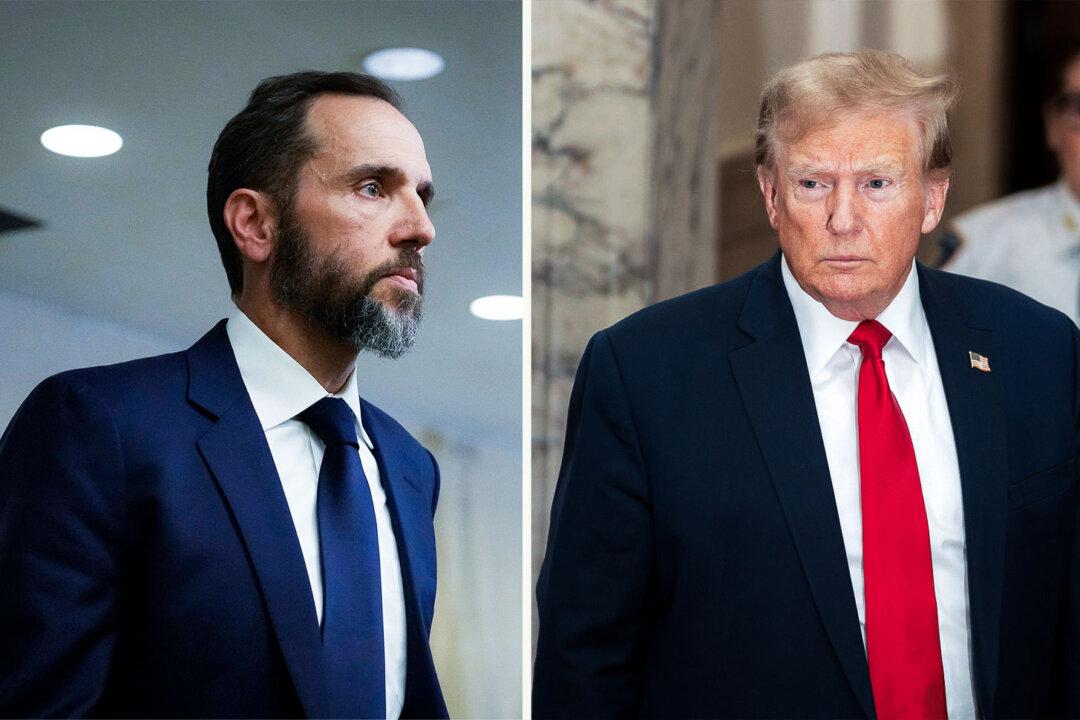Former President Donald Trump has accused special counsel Jack Smith of trying to support President Joe Biden’s campaign by making “lawless” requests to keep some evidence hidden that would otherwise reveal “unconstitutional, illegal, and unethical” conduct by investigators and prosecutors.
President Trump made the allegation in a Feb. 23 filing in the U.S. District Court, Southern District of Florida, in a case that accuses the former president of mishandling sensitive documents stored in his Mar-a-Lago home that the FBI raided.





